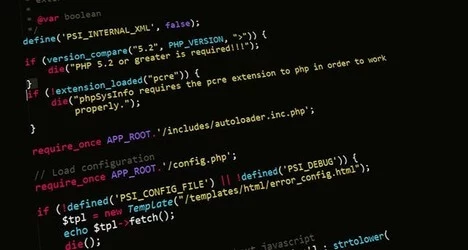Future of Work and HR
Add bookmarkThe future of work is fluid. Never before has there been such a change in the way people take on the challenges of their jobs and the responsibilities involved. And the changes are happening at near lightning speed as HR races to keep up. Knowing that, three questions come to mind.
- Why is it happening?
- What’s behind the change?
- What does it mean for HR?
Those three questions are at the heart of the latest report from the HR Exchange Network entitled The Future of Work and HR available now for download.
Future of Work and HR
Technology
For every action, there is an equal and opposite reaction. This is known as Newton’s Third Law. While this is not a science-related article, the law can still be applied to the current flux in the future of work and HR. To be more precise: as changes happen in the workplace, HR will also have to change.
The reason for this is a bit more complex as it has many more components or change agents. The first and foremost is technology, but that can be said for almost anything, not just HR. As older technologies grow in sophistication and newer technologies come online, HR realizes that change is now the rule rather than the exception.
One of the best examples of how technology is impacting the future of work and HR is remote work. Buffer’s State of Remote Work report says remote workers will account for nearly three-quarters of the U.S. workforce by 2020. That in itself means huge changes are occurring around the workforce. New methods of engagement are required as are strategies for team building and employee connection.
The Workforce
Speaking of the workforce, it’s an agent of change itself.
HR professionals who have been in the business for sometime probably remember the rise of Generation Y (Millennials) and how spectacularly unprepared HR was when it happened. In an attempt to stop history from repeating itself, HR is on point and ready for the rise of Generation Z.
And the timing couldn’t be better. By 2020, it’s estimated the workforce will be 50% Generation Z. These workers are considered the 1st true digital natives, which mean technology is practically an extension of their being. They are also heavily focused on social accountability, entrepreneurship and the work-life balance.
Flexibility/Flexible scheduling
The days of going into an office and working in a cubicle are dwindling. Work schedules are changing meaning the average workday isn’t 8a – 5p. Sometimes it is 1p – 11p or any other combination of hours conceived. Commonly known as flexible scheduling, it’s already becoming a significant part of the future of work.
Nextel Brasil is a perfect example.
“You want to arrive at 10 am? No problem as long as you do your job and you get your time in and you deliver. And the workforce, especially the young workforce, loved it,” Luana Matos, the company’s chief human resources officer, said. “They start to feel like entrepreneurs and part of a start up culture.”
Redefining HR
The Future of Work and HR report goes into much more detail about the previously mentioned topics and others. It also provides valuable insight from HR professionals from companies like HP and Southwest Airlines.
Download your copy of The Future of Work and HR here.
There is one critical piece of information to take away from this article and the report: the change in the future of work and HR is real. For HR professionals, the future of work is not just about redefining the workplace, the employees, or technology… it’s about redefining themselves. Ultimately, HR is in the driver’s seat of this change. The power to mold the future of work lies in being able to address the change in generations, handle the challenges of technology, and find the culture that works best for the employees and the business of their respective companies.






















